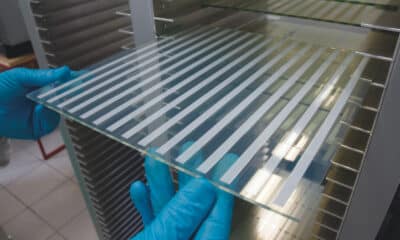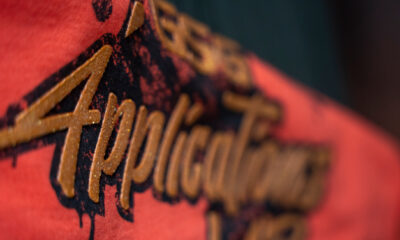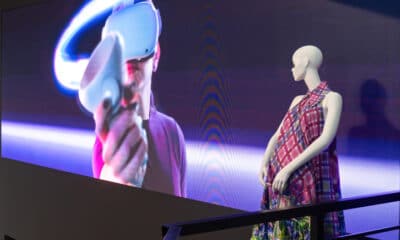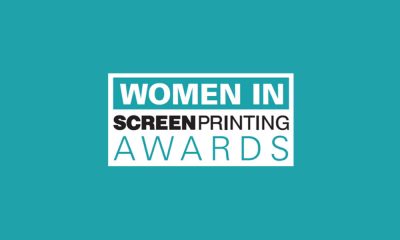Ardeje (Valence, France) develops and integrates chemistries and processes for industrial manufacturing systems using primarily inkjet technology, jetting functional fluids for organic photovoltaic, lighting, smart textile, plastronic, biological, consumer product, and plastic applications.
Ardeje (Valence, France) develops and integrates chemistries and processes for industrial manufacturing systems using primarily inkjet technology, jetting functional fluids for organic photovoltaic, lighting, smart textile, plastronic, biological, consumer product, and plastic applications.
Ceradrop, MGI Group (Limoges, France) offers three inkjet print platforms – the L-Serie, X-Serie, and F-Serie – designed for material-deposition applications including printed electronics, photovoltaics, and Smart 3D fabrication. The company designed its platforms for use with most industrial inkjet printheads and offers integration for customer applications. Also available is CeraSlice, a CAD/CAM 2D and 3D software program for designing printed products.
Kateeva (Newark, California), founded in 2008, overcame technical hurdles and refined the process to cost-competitively inkjet print OLED panels. Its YieldJet system prints in a nitrogen clean room atmosphere to eliminate oxygen and particle contamination. The company has also advanced its inkjet printing mechanism to eliminate nozzle-to-nozzle non-uniformity and “Mura” banding.
Machines Dubuit (Noisy-le-Grand, France) offers screen-printing and inkjet systems. Its inkjet machines focus on printing plastic bottles, tubes, and jars.
Advertisement
Markem-Imaje CSAT (Eggenstein-Leopoldshafen, Germany) offers its CSAT ITS6 flexible inkjet print modules that can be tailored for a range of label-manufacturing applications. The company also offers its services to customize and integrate the CSAT ITS6 into production operations for specific applications. The CSAT ITS6 uses UV LED curing for this process-color printing system. It produces 600 x 600 dpi resolution for a maximum print width of 16.5 inches and
maximum through-put speeds of 157 feet per minute).
Microdrop Technologies (Norderstedt, Germany) also specializes in providing micro-dispensing inkjet devices, platforms, and solutions for industry. Clients use Microdrop’s inkjet technology for dispensing oil to lubricate computer hard-drive motors and drilling operations, depositing adhesives for bonding optics and micro-dimensional parts, and dispensing mercury for UV and visible light lamps. Microdrop offers three versions of its Autodrop printer platform, but will also tailor the platform to meet its customers’ requirements.
MicroFab (Plano, Texas) has pioneered inkjet dispensing technologies for industrial and biological applications since its founding in 1984. It develops and manufactures robust, drop-on-demand, piezo-actuated micro-dispensing printheads. The company offers single-nozzle heads and printhead clusters. Two of its printhead dispenser models can jet fluids heated up to 240 C (300 C with solder). It recorded many inkjet firsts, often patenting them with its industrial clients. In 1988, MicroFab created the manufacturing system for the first inkjet medical diagnostic test, which its customer, Abbott Labs, has since sold and shipped over $4 billion worth of the product. In the same year, it demonstrated printing electronics with its inkjet systems. In 1994, it was the first to inkjet print a DNA microspot array, as well as the first to inkjet print solder. Other inkjet firsts credited to MicroFab include micro-optical lenses and other optical elements, live cells, precision vapor generation for medical diagnostics, nanoparticle metal inks, Polymer Light Emitting Diode (PLED), display phosphors, tissue engineering structures, carbon nanotubes, organic solar cells, Organic Field Effect Transistors (OFET) display backplanes, and explosive and drug detectors. MicroFab recently built and delivered a 3D inkjet system that prints skin cells. In 1999, MicroFab launched its Jetlab inkjet printing platform, which it can tailor to meet its customers’ requirements.
MPrint (Baiersbronn, Germany) offers a range of analog and digital products and services. It manufactures the mjet inkjet-printing module for printing paper, card, wood, plastic, glass and metal with grayscale Kyocera piezo inkjet heads with UV inks. It also offers a series of in-line options including plasma and corona pretreatment, ink reclaiming with automatic head cleaning, UV LED pinning, and integration into production lines. Its mlabel web modular print system offers inkjet and thermal-transfer print engines, integrated label splicing, dispenser for RFID inlay insertion with optional read-write device, and choice of UV LED or standard UV final cure. It can also accommodate cold foiling and flexographic printing modules. The company offers mware, its inkjet components, printheads, controls, ink supply, software, and integration development “from concept to implementation.”
Teco, a.k.a. Tecoptique (Chambéry, France), manufactures its X-Cube, X-302, and X-304 hot-melt inkjet systems for printing on optical lenses. While focused primarily on the ophthalmic industry, the company offers its technical and integration expertise to customers for other applications.
Till (Kelkheim, Germany) uses inkjet printing technology to print containers on its three platforms: a laboratory device decorating up to 200 containers per hour for sampling and very short runs; a batch operating machine printing 500 to 4800 containers per hour; and a high-capacity system deco-rating up to 36,000 containers per hour that is used as part of a product filling manufacturing line. Till provides its solutions to the glass bottle and container manufacturing and decorating industries; beverage-can filling operations; manufacturers of household cleaners, liquid pharmaceuticals, and cosmetics; and short-run tube-filling operations. Till also offers integration assistance for implementing applications of its inkjet technology.
Advertisement
UniJet (Kyungki-do, South Korea) offers a line of research and development and manufacturing production inkjet platforms using market-available printheads.
See also:
The Challenges of Functional Inkjet Printing
Inkjet’s Industrial Limitations
A Very Brief History of Industrial Inkjet Printing

 Case Studies2 months ago
Case Studies2 months ago
 Art, Ad, or Alchemy2 months ago
Art, Ad, or Alchemy2 months ago
 Andy MacDougall2 months ago
Andy MacDougall2 months ago
 Columns4 weeks ago
Columns4 weeks ago
 Editor's Note3 weeks ago
Editor's Note3 weeks ago
 Marshall Atkinson3 weeks ago
Marshall Atkinson3 weeks ago
 Case Studies4 weeks ago
Case Studies4 weeks ago
 News & Trends2 months ago
News & Trends2 months ago

















